CKD Stage 3: Improving Health With A Kidney Friendly Diet
KidneyDiet
So, you've been recently diagnosed with Chronic Kidney Disease (CKD). Your doctor walked into the room to discuss results from your blood work, and she started discussing the glomerular filtration rate of your kidneys, your BUN and creatinine levels, and the only words you could understand were "kidney" and "disease." Your first thought may have been, "I feel fine. I don't have any symptoms of kidney pain." Your second thought, "What does all this mean?" Foods to Avoid with Stage 3 Kidney Disease Managing a kidney-friendly diet becomes increasingly important when you reach stage 3 chronic kidney disease (CKD). At this stage, your kidneys struggle to filter waste properly, making your dietary choices crucial for maintaining kidney health and preventing progression to later stages. High-Sodium Foods Too much sodium can lead to fluid retention, increased blood pressure, and make kidney disease worse. When following a kidney diet, be mindful of these high-sodium culprits: Processed foods: Most canned foods, frozen meals, and frozen pizza contain excessive sodium to preserve shelf life Canned vegetables: Unless they're labeled "no salt added" Deli meats and processed meats: These typically contain sodium-based preservatives Salty snacks: Chips, pretzels, and salted nuts can significantly increase your sodium intake Instant soups and broths: These convenience foods often pack a day's worth of sodium in one serving High-Potassium Foods When kidneys don't function optimally, too much potassium can build up in your blood, potentially causing serious heart problems. Consider limiting these high-potassium foods: Certain leafy green vegetables: Spinach, Swiss chard, and beet greens Potatoes, sweet potatoes, and winter squash Bananas, oranges, and kiwi: Choose lower-potassium fresh fruit options like berries, apples, and pineapples instead Tomato products: Sauces, pastes, and juice Dried fruits: Raisins, dates, and apricots Beans and lentils: While nutritious, they're high in both potassium and phosphorus High-Phosphorus Foods Excess phosphorus can pull calcium from your bones and create dangerous deposits in blood vessels. Foods high in phosphorus to limit include: Dairy products: Milk, cheese, and yogurt Whole wheat bread and other whole grains: These contain more phosphorus than refined alternatives Dark colas and some other sodas Processed foods with phosphate additives: Check ingredient lists for words containing "phos" Nuts and seeds: While they contain heart-healthy fats, many are high in phosphorus and potassium Protein Considerations Your body produces protein waste that healthy kidneys would normally filter. With stage 3 kidney disease, you may need to limit protein…






